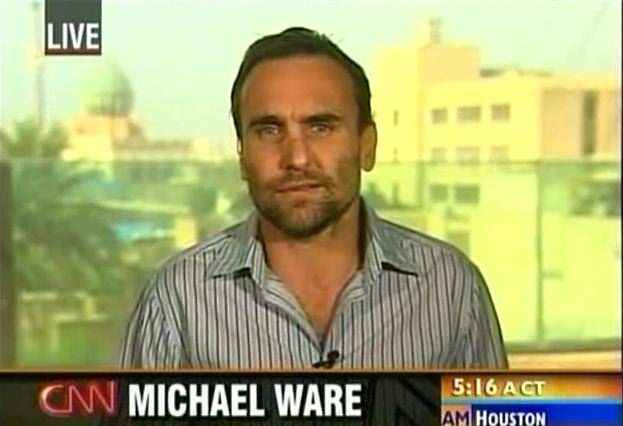AAM: "There has been phenominal change here in Iraq."

Length: 2:53
LARGE (33.8 MB) ----- SMALL (3.4 MB)
JOHN ROBERTS: To Iraq now, and as we've been reporting this morning, violence appears to be on the decrease. According to U.S. officials in Baghdad, since the troop -- the so-called troop surge over the summer, violence is down 55 percent.
Our Michael Ware joins us now live from Baghdad with more perspective on this. And Michael, the critical question is, here, is this a trend?
MICHAEL WARE, CNN CORRESPONDENT: Well, yes, it's definitely a trend, John. I mean, we've been seeing this decrease in violence and attacks and deaths and casualties amongst U.S. forces, Iraqi forces and civilians going on for some months now. This needs to be heralded. I mean, this is terrific news.
The deaths and attacks overall are decreasing. I mean, just civilian deaths alone here in the capital from sectarian murders and al Qaeda attacks and militia violence, civilian deaths down 75 percent since June. I mean, that's fabulous, but there's a number of things to bear in mind. I mean, last week, there was still 575 attacks, overall, and the American military is celebrating last Friday when there were only 33 attacks, the lowest level on a day in three and a half years.
Now imagine if there were still 33 attacks in Israel or America or even Pakistan. It shows there is still a war going on. The generals warn that these are trends, they're good, but let's not take too much of this. Nonetheless, this is good or old news. We've heard this before, for a month they've been saying the levels are down, so pre-Samara bombing, January 2006 levels.
But the news is worth repeating to the world because they need to know there has been phenomenal change here in Iraq -- John.
ROBERTS: So, Michael, if this is a trend, can the military keep it up and could it potentially lead to the political progress that we have so far not seen in Iraq?
WARE: Well, this is where we come to the crux of the whole war, John. I mean, the question is, will this last? Now, as I said, the admirals and the generals are very careful to warn that these are just early signs. They're good. They pose well, but we cannot say for sure. Let's just see how it develops. They're cautiously optimistic and so they should be. Nonetheless, privately they do admit that things could easily revert back. You hear them publicly talk about we have a window of time to maximize this, because they know that this mightn't last forever.
But the bigger thing is, strategically, what does this mean? If there's no reconciliation, then it's going to account for nothing, and right now at the political level, there is no movement. It's all at the grassroots. Can the bottom -- can there be people-power to force the politicians to actually make the most of this violence decrease or it's all wasted -- John.
ROBERTS: All right. Our Michael Ware for us in Baghdad this morning. Michael, always good to hear your perspective on things, thanks -- Kiran.
